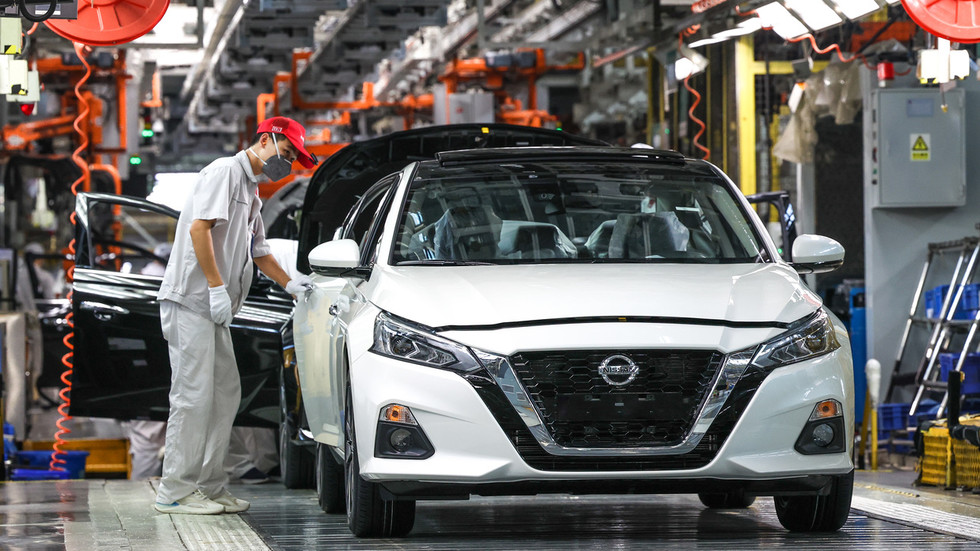Introduction
The automotive industry is undergoing a seismic shift as electric vehicles (EVs) become the cornerstone of future mobility. In this changing landscape, Japanese carmakers are considering a strategic merger to bolster their competitiveness against the formidable rise of China’s electric vehicle market. This potential collaboration represents not just a tactical maneuver but a significant reconfiguration of the automotive sector that could foster innovation, enhance market share, and reshape global automotive dynamics.
The Current State of the EV Market
The global electric vehicle market is experiencing unprecedented growth, with estimates suggesting that the market could reach a value of over $800 billion by 2027. This surge is driven by a confluence of factors, including advances in battery technology, government incentives, and a growing consumer demand for sustainable transportation options. However, the landscape is dominated by Chinese manufacturers such as BYD, NIO, and Xpeng, which are rapidly gaining market share both domestically and internationally.
China’s Dominance in the EV Sector
China’s aggressive investment in EV technologies and infrastructure has positioned it as a global leader in electric vehicle production. Key factors contributing to this dominance include:
- Government Support: The Chinese government has implemented favorable policies, including subsidies for manufacturers and consumers, to promote the adoption of electric vehicles.
- Innovative Technologies: Chinese firms are at the forefront of battery technology, with companies like CATL leading in battery production and innovation.
- Market Size: With the largest automotive market in the world, China provides a robust consumer base for electric vehicles.
As a result, China’s influence in the EV sector poses a significant challenge for traditional automotive powerhouses, including those in Japan.
The Japanese Automotive Landscape
Japanese car manufacturers, known for their engineering excellence and reliability, are facing a critical juncture. Companies like Toyota, Honda, and Nissan have historically dominated the global automotive market, but they are now grappling with the urgent need to pivot towards electric mobility. In recent years, Japan’s EV adoption has lagged behind that of China and Europe, prompting concerns about the sustainability of Japanese automotive leadership.
Challenges Faced by Japanese Carmakers
The challenges facing Japanese automakers in the EV race include:
- Delayed Transition: Many Japanese manufacturers were slow to embrace electric mobility, focusing instead on hybrid technologies, which has left them vulnerable to competitors.
- High Development Costs: The transition to electric vehicles requires substantial investment in research and development, infrastructure, and supply chains.
- Regulatory Pressures: Global emissions regulations are tightening, necessitating rapid adaptation and innovation from automakers.
The Merger Consideration
In light of these challenges, Japanese carmakers are weighing the potential benefits of a merger. A strategic partnership could offer several advantages:
- Resource Sharing: By pooling resources, companies can reduce development costs and accelerate the innovation process.
- Enhanced Market Position: A merger could create a more formidable competitor against Chinese automakers, improving market share and negotiating power in supply chains.
- Joint Development: Combined R&D efforts could lead to breakthroughs in battery technology, autonomous driving, and smart mobility solutions.
Potential Collaborations
While no specific merger has been finalized, discussions among key players such as Toyota, Honda, and Nissan are reportedly ongoing. The formation of alliances could lead to the establishment of a unified front, allowing for shared platforms and technologies that would enhance competitiveness. For example, collaborating on battery technology could enable Japanese firms to develop more efficient and cost-effective solutions, essential for competing with Chinese giants.
Broader Implications for the Automotive Industry
The potential merger of Japanese carmakers could have far-reaching implications for the global automotive landscape:
- Increased Competition: A stronger Japanese alliance could challenge not only Chinese dominance but also European and American automakers, fostering a more competitive environment.
- Innovation Acceleration: The merger could catalyze innovation in EV technologies, benefiting consumers with more efficient and advanced vehicles.
- Global Supply Chains: It may also prompt a reevaluation of global supply chains, with an emphasis on sourcing materials and components locally to reduce dependency on Chinese suppliers.
Conclusion
The contemplation of a merger among Japanese car manufacturers underscores the urgency of adapting to a rapidly evolving automotive market. As competition intensifies with the rise of China’s electric vehicle market, strategic collaborations may be crucial for Japanese firms to regain their footing and enhance their global competitiveness. While challenges abound, the potential for innovation and growth through such mergers presents a compelling opportunity for Japan to redefine its automotive future. The coming years will be pivotal, determining not only the fate of Japanese carmakers but also the overall trajectory of the global automotive industry.
See more Business Focus Insider Team

